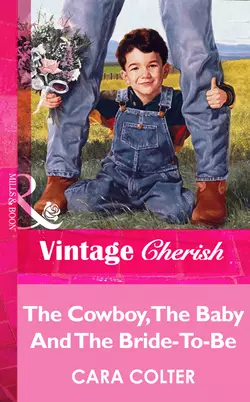The Cowboy, The Baby And The Bride-To-Be

Cara Colter
Тип: электронная книга
Жанр: Современные любовные романы
Язык: на английском языке
Стоимость: 386.29 ₽
Статус: В продаже
Издательство: HarperCollins
Дата публикации: 16.04.2024
Отзывы: Пока нет Добавить отзыв
О книге: Fabulous FathersFIRST COMES BABY…Shayla Morrison′s mission was to unite a rambunctious baby boy with the rugged cowboy who was his closest kin. But one look at long, tall Turner MacLeod and Shayla decided to stick around. After all, what did a rough and tough rancher know about babies? Then again, what did a sensible woman like Shayla know about sharing close quarters with a mysterious Montana man?THEN COMES MARRIAGE?Shayla should have hightailed it back to her ho-hum life. Then the sound of a child′s laughter–and the sparkle in the cowboy′s eyes–had her whistling the wedding march. But could she turn the brooding bachelor into a forever husband?Fabulous FathersThis cowboy found a baby on his doorstep–and a wife in waiting!